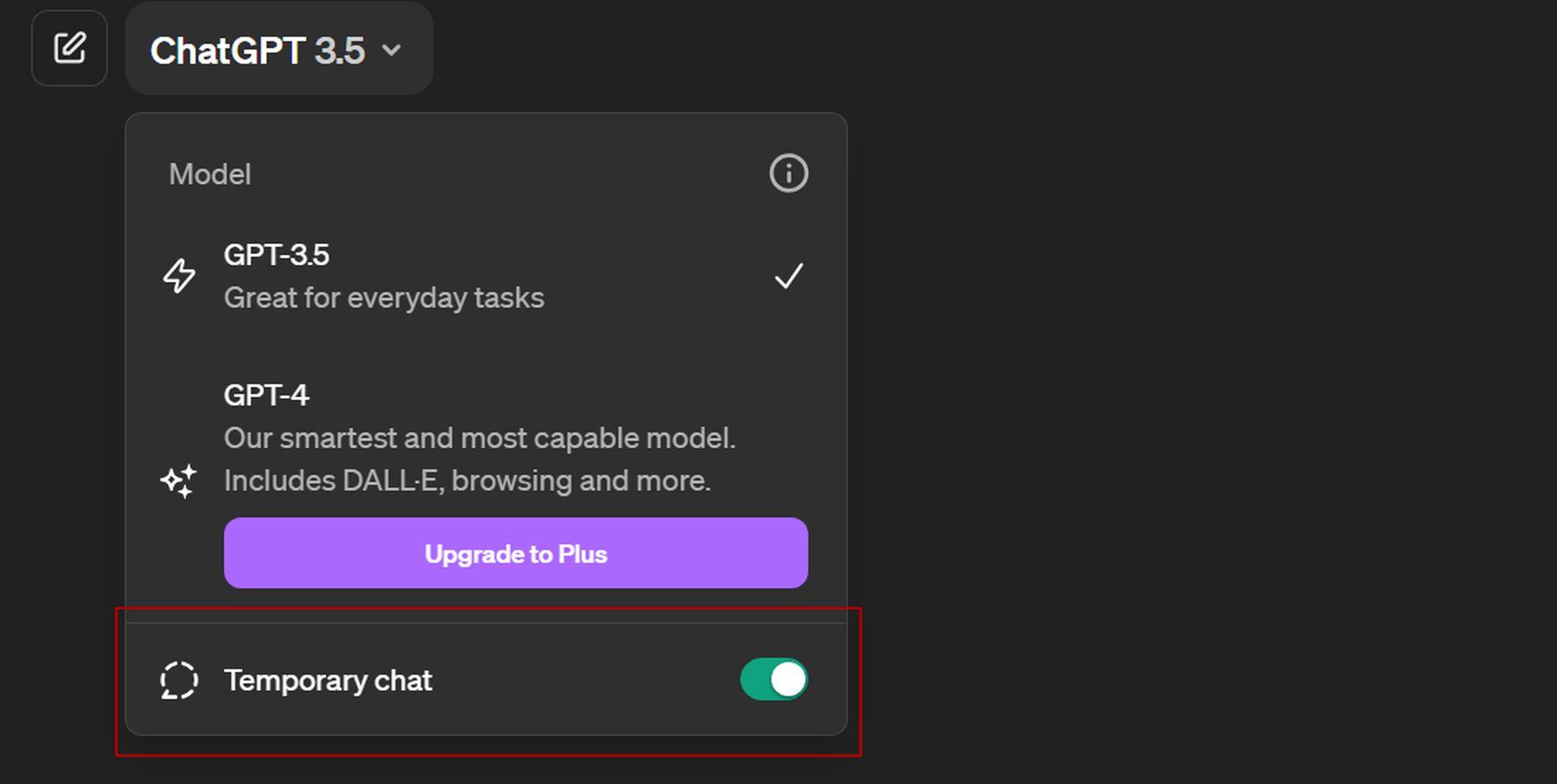OpenAI’s ChatGPT has carved a niche for itself with its constant updates and the ChatGPT temporary chat feature is the latest addition to the most popular chatbot of all time.
Known for its ability to generate human-quality text and carry on conversations, ChatGPT is a popular tool for writers, researchers, and anyone curious about the potential of AI. However, some users might desire a space for conversations that are confidential and don’t contribute to the model’s learning process.
This is where the ChatGPT temporary chat feature comes in, offering a unique way to interact with the popular chatbot.
What is ChatGPT temporary chat feature?
Temporary Chat is a feature within ChatGPT that allows users to have conversations that vanish without a trace. Unlike standard interactions, these chats are not saved in the history and don’t influence the model’s future responses. This creates a “forgetful zone” where users can discuss sensitive topics, brainstorm freely, or simply explore ideas without leaving a digital footprint. So if you were asking yourself “Is it impossible to stop your data being used to train AI“, there is now a way!
Technically, temporary chat disables ChatGPT’s memory function for the duration of the conversation. This means the model won’t remember anything discussed previously in the session or any information gleaned from past interactions with other users. It essentially starts with a clean slate for each ChatGPT Temporary Chat session, ensuring the conversation remains isolated and confidential.
How to use ChatGPT temporary chat feature
As we mentioned before OpenAI’s recent update empowers users with greater control over their ChatGPT experience, particularly regarding data privacy.
Here’s a step-by-step guide to utilizing this feature:
- Go to the ChatGPT website
- Click the model selection drop-down menu on the top-left corner of your screen
- Enable “Temporary chat”

Feel free to discuss sensitive topics, brainstorm freely, or simply explore ideas without leaving a digital footprint.
Remember, anything you type will be processed by ChatGPT in real-time, but it won’t be stored for future reference, but OpenAI states:
“For safety purposes, we may keep a copy of this chat for up to 30 days.”
Once you’ve finished your private conversation, simply close the chat window. Your next interaction with ChatGPT will function in the standard mode, where conversations are saved in the chat history and contribute to the model’s learning process.
Currently, the update is only live on the ChatGPT web version, with the mobile app rollout coming soon. This update is a testament to OpenAI’s commitment to user-centricity, offering greater control over chat history and introducing features like Temporary Chats for enhanced privacy.
Featured image credit: Emre Çıtak






